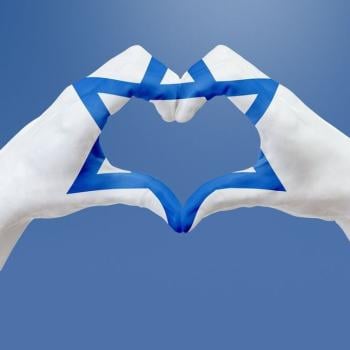Next, I performed sai between the hills of Safa and Marwa . I could now call myself a mu'tamirah -- one who has completed umrah. The following day, I was set for Arafah. The day before arafat is called tarwiyah, and it is the day pilgrims begin to settle into Mina. But since it is not a mandatory rite, we spent the day in Mecca. In Arabic, tarwiyah can mean "quenching" and, appropriately, the dryness of our day in Mecca and Jeddah was quenched by heavy rainfall. This was perhaps one of the most memorable afternoons of my journey.
I left our hotel to catch dhuhr prayer at the Haram when suddenly a light pitter-patter fell from the sky. By the time the adhan sounded off, thousands of pilgrims were circumambulating under a heavy downpour. The Holy Masjid was cleansed, as if in preparation for the hajj crowds. It was an incredible experience to hear takbeers and tahleels through the rain with my head on the cold, wet marble before the drenched black House. Like a shower from Heaven itself, that rainy day in Mecca was both miraculous and merciful, but above all it was beautiful.
By nightfall, it was time for us to reenter our sacred state of ihram and proceed to Arafah, the mountain where Adam and Eve first "arafah" -- literally "came to know" -- one another, and where the beloved Prophet, Peace Be Upon Him, gave his historic last sermon. "Hajj is Arafah," as the Prophet proclaimed, and after seeing the mountain during the day, it was easy to understand why it defines hajj. Two million Muslims from all over the world with different social, cultural, and economic backgrounds left their homes behind and journeyed to this scorching desert mountain for one purpose and one purpose only: to fulfill the call of their one God. I listened to the khutbah of Arafah from Namirah mosque and admired the general themes: "the ummah of Muhammad needs to unite! ...Terrorism has no place in Islam! ...Return to the true teachings of your religion and you will succeed! ...Be clean, save the earth!" What powerful messages for a powerful audience.
The diversity of all humankind lay before me on Arafah. The sight was so awe-inspiring that even a non-believer would not help but feel overwhelmed when considering the magic of it. It is said that after Asr time on Arafah day, God Himself descends to the earth and boasts of his loving pilgrims to the angels! A complete yet glorious surrender of hearts happens here a millionfold, and with it brings promises of paradise and a new-born state of purity. I saw old men and young children beaming with joy after the call to maghrib came in. We flowed down the mountain in unison in what is called the nafrah, excited for our newly acquired "clean slates." We were all sons and daughters of Adam, and we rejoiced in the great steps toward heaven that we made together that day.
Our journey was not over yet. We headed to Muzdalifah to pick up the jimars, or stones, to later use at Mina. There was a pile of stones prepared for us next to our tents. I hated these unnecessary short cuts! The Saudi guards were puzzled when we told them that we wanted to collect our own stones. Stones in hand, we lay under the stars like the Prophet Muhammad, peace be upon him, did in Muzdalifah. It was there that I met a pilgrim from the Maldives who told me about their young and environmentally-conscious president whose efforts to save the dwindling coral reefs were, so far, futile. We then prayed together for the coral reef of Maldives. During our conversation, I made no cynical political remarks as I usually would, and I decided to be more optimistic after hajj.
Next, we went to Mina to throw the first seven jimars of Aqaba. I did not expect the act of throwing stones to be so fulfilling! My arm felt powerful when I threw pebbles at a figurative Devil. The mere act of stoning was much more than cursing the devil: it was an expression of our collective choice to live, without compromise, a sinless life to the best of our abilities. I pledged to be more vigorous in my own struggle against sin and temptation. I was going to stop backbiting and complaining once and for all!
The move from Mina to Mecca was heavy and surreal. After all, saying goodbye to a loved one is never easy. As a final treat, we arrived in Mecca after midnight and I could do my last tawaf at night once more. Bidding this wondrous city farewell, I prayed for the opportunity to make this life-changing journey at least once more. As a twenty-two-year-old with many passions, I knew that my life was destined for many more changes, challenges, and opportunities. Despite any apprehension I felt, I found great solace in knowing that I will always have my "sophisticated creed" to guide me along the way. Hajj made this realization all the more strong. At a time when I felt so unaccomplished still, I felt like I mastered the greatest accomplishment of all: to live by the reminder that even when my face is not turned towards the qibla, my compass should forever point towards the Almighty and Him alone.
This article was first published at altmuslimah.com, a Patheos Partner, and is reprinted with permission.
Farah El-Sharif is a graduate of the Georgetown University School of Foreign Service where she majored in Culture and Politics with a concentration in Islam and Colonialism studies. She currently resides in Amman, Jordan with her family.



